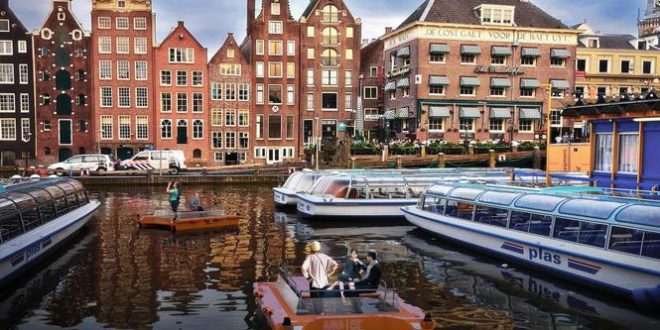The Amsterdam Institute for Advanced Metropolitan Solutions (AMS) recently announced a five-year research initiative to explore the possibilities of autonomous water-based systems.
In collaboration with MIT, the Amsterdam Institute for Advanced Metropolitan Solutions (AMS Institute) has launched the world’s first major research program on autonomous floating vessels in metropolitan areas, dubbed Roboat.
“Roboat offers enormous possibilities,” AMS Institute scientific director Arjan van Timmeren said of the five-year, $27.9 million project. The team could, for example, research underwater robots that detect diseases at an early stage. Or use Roboats to rid local canals of floating waste and find what van Timmeren called “a more efficient way” of recovering the 12,000 bicycles that end up in the water each year.
“It is a fantastic opportunity for Amsterdam,” the city’s vice mayor Kajsa Ollongren said. “To have the world’s most prominent scientists work on solutions with autonomous boats in this way is unprecedented, and most fitting for a city where water and technology have been linked for ages.”
While research will be conducted primarily in Amsterdam, the program aims to serve as an inspiration for urban areas around the globe. (Perhaps Venice could follow suit.)
“Imagine a fleet of autonomous boats for the transportation of goods and people,” said Carlo Ratti, MIT professor and principal program investigator. “But also think of dynamic and temporary floating infrastructure like on-demand bridges and stages, that can be assembled or disassembled in a matter of hours.”
The first Roboat prototypes are expected to land in the waters of Amsterdam next year.
Agencies/Canadajournal
 Canada Journal – News of the World Articles and videos to bring you the biggest Canadian news stories from across the country every day
Canada Journal – News of the World Articles and videos to bring you the biggest Canadian news stories from across the country every day



